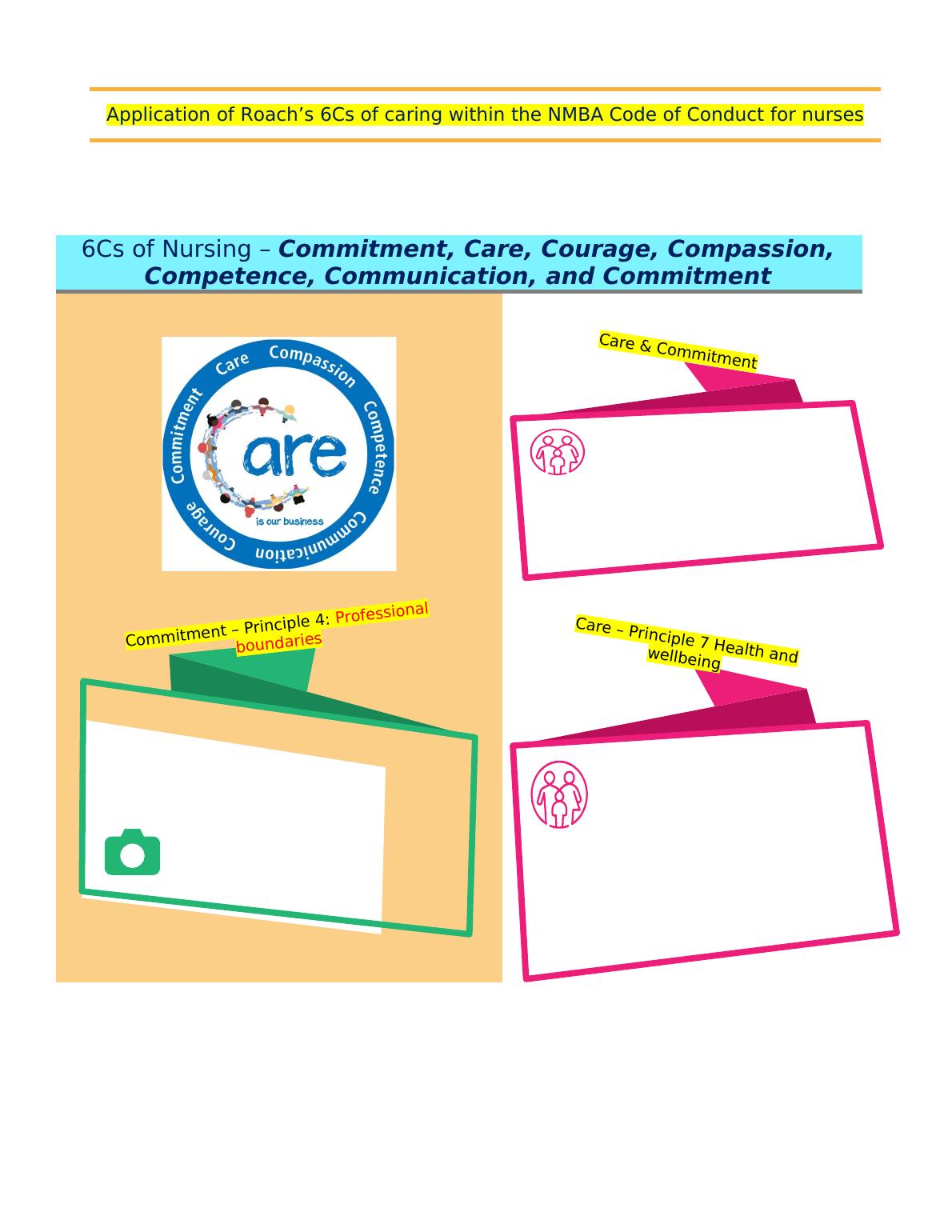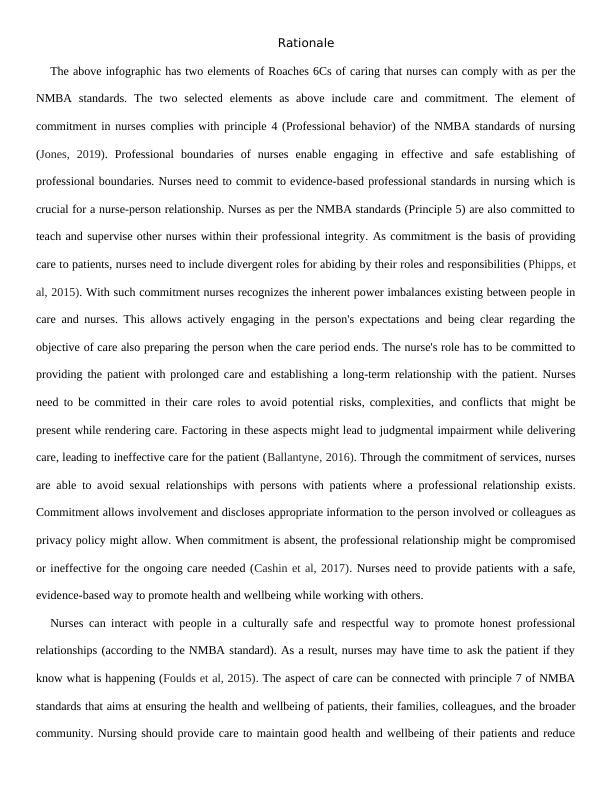Roach’s 6cs of Caring and the Nmba Code Of Conduct 2022
Description of the marking rubric for Assignment 2 Infographic & Rationale
4 Pages1365 Words58 Views
Added on 2022-09-18
Roach’s 6cs of Caring and the Nmba Code Of Conduct 2022
Description of the marking rubric for Assignment 2 Infographic & Rationale
Added on 2022-09-18
ShareRelated Documents
End of preview
Want to access all the pages? Upload your documents or become a member.
Analysis of England's Nursing Policy on Compassion and 6Cs
|7
|1610
|20
Roach’s 6C’s and Nursing Code of Conduct by NMBA
|1
|1172
|81
Compassion and Competence Information 2022
|5
|1332
|52
Nursing Care and Code of Conduct: Integrating Roach's 6C's and NMBA Standards for Enhanced Practice
|6
|848
|295
Compassion and Competence in NMBA Standards Discussion 2022
|6
|1507
|34
Nursing Theory and Code of Conducts 2022
|2
|511
|13


